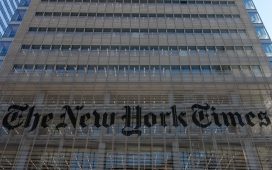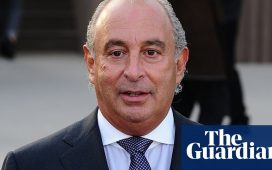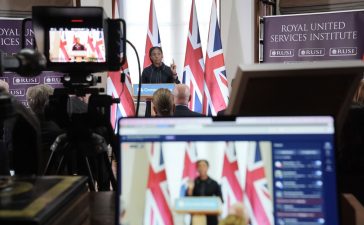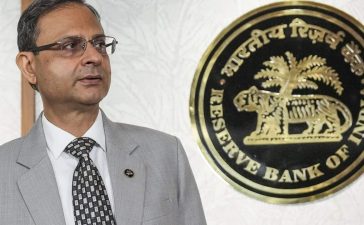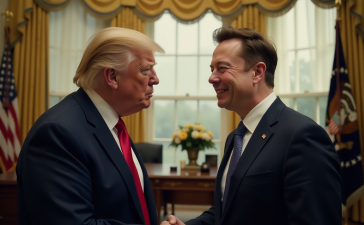One private credit scoop to start: Guardian Life Insurance has increased its stake in credit investment giant HPS Investment Partners and plans to transfer roughly $30bn to the firm to manage, according to people involved in the matter. The deal will raise Guardian’s stake in HPS to about 14 per cent from less than 10 per cent.
And another scoop to start: Carlyle Group is exploring a €3bn sale of Dutch salt and chemicals producer Nobian, according to people familiar with the matter. The US buyout group has held discussions with investment banks as it prepares for a potential sale process, which is expected to start next year.
Welcome to Due Diligence, your briefing on dealmaking, private equity and corporate finance. This article is an on-site version of the newsletter. Premium subscribers can sign up here to get the newsletter delivered every Tuesday to Friday. Standard subscribers can upgrade to Premium here, or explore all FT newsletters. Get in touch with us anytime: Due.Diligence@ft.com
In today’s newsletter:
-
Altice goes into fire-sale mode
-
Marc Rowan and his Hamptons lobster shack
-
Italian bank Monte dei Paschi’s greatest test yet
Media giant goes into fire-sale mode
Patrick Drahi’s French media conglomerate Altice is on the defensive, as it stares down $60bn of debt and attempts to fend off angry creditors.
On Monday, Altice unveiled its latest bid for cash: it intends to sell its 24.5 per cent stake in UK telecommunications company BT Group to Indian billionaire Sunil Bharti Mittal.
Over the past decade, Altice sprang from relative obscurity into a global media giant, supercharged by cheap debt during an era of rock-bottom interest rates.
But now, stubbornly high rates and a criminal probe into one of the company’s founders are weighing on it. As a result, Drahi is facing pressure to sell assets to reduce the colossal debt pile he amassed during the cheap money era.
The BT stake is the latest in a number of recent attempts to raise cash. In March, Altice sold a news channel and a radio station to shipping magnate Rodolphe Saadé. And last week, Drahi partnered with Abu Dhabi-based sovereign wealth fund ADQ to give a $1bn capital injection to auction house Sotheby’s.
Despite the recent rally in BT shares (including an 8.4 per cent jump on Monday), the investment in the former UK telecoms monopoly had resulted in losses for Altice, according to a person familiar with the matter.
Altice first took a stake in BT in 2021, acquiring a 12 per cent holding that it later increased to 24.5 per cent. Altice borrowed heavily from banks to build the stake, which has dropped about £1bn in value since it was disclosed, according to FT calculations.
Sotheby’s has also proved a sore spot. Its parent company had $3.5bn in long-term debt as of the end of last year, made up of loans stemming from Drahi’s 2019 buyout and mortgages he took out against its trophy properties.
Earlier this summer, S&P Global Ratings cut the auction house’s credit rating to B minus from B, citing “pressured profitability and continued ebitda decline”.
Yet spectators are still waiting for an opening salvo between Drahi’s empire and its biggest creditors. Bondholders for the company’s French telecoms business banded together earlier this year after management warned they could expect writedowns on their debt.
DD’s still waiting for that fight to break out into the open.
Apollo tycoon stirs up trouble in the Hamptons
During the pandemic, David Solomon famously grew upset when a junior analyst approached him at a Hamptons hotspot when the Goldman Sachs chief executive thought the underling belonged in the office.
According to the news report, the eatery for the encounter was Duryea’s, a Montauk institution whose once rough edges had been smoothed out to bring in the likes of DJ D-Sol and other Masters of the Universe (a $96 lobster Cobb salad is not for everyone).
The man behind the Duryea’s glow-up is Marc Rowan, best known to DD readers as the Apollo tycoon. A decade ago, when he was brawling with Elliott, Oaktree and Appaloosa in the Caesars bankruptcy case, Rowan bought Duryea’s from the founding family for $6mn.
As DD’s Mark Vandevelde and Sujeet Indap chronicled this weekend in an FT Magazine feature, it has been a saga ever since for Rowan and East Hampton Town, which governs Montauk.
Rowan has a serious passion for hospitality and his grand plans for the bayside spot clashed with the town’s byzantine zoning code and longtime residents who are sticklers for at least their interpretation of the law.
Rowan had defeated the town in court over the construction terms at another Montauk property and he believes he never got the fair hearing on Duryea’s that he deserved.
For their part, many residents dismiss Rowan as just another Wall Street plutocrat spoiling their way of life (and the irony of an Apollo guy playing hardball has not been lost on anyone).
The winding political and courtroom stand-offs persist to this day.
On your Hampton Jitney ride this week to the East End or when waiting to get into Surf Lodge, be sure to read the narrative about the distinctive characters found in the old and the new Hamptons, where everyone treasures its magnificent natural beauty but still cannot find peace.
Death, bad deals and the oldest bank’s next chapter
Monte dei Paschi has been an anchor for the Italian city of Siena since its founding in the 1400s. And for many years, it felt like a study in the very purpose of banking.
The bank has served as a charity for Siena’s poor, a benefactor to the city’s civic institutions, a patron of the arts, a financier for Tuscan agricultural development, a money pot for the local nobility and an aggressive industry consolidator that is run in the interests of global investors. The list goes on.
But haunted by its scandal-ridden past, the bank’s future now looks as uncertain as at any time since its founding. After bailing out the bank in 2017, the Italian government hopes to relinquish its remaining stake by the end of this year.
And in all likelihood, it will be taken over by a larger rival with no connection to Siena — a disaster for the city it has built and nurtured for centuries, Owen Walker writes for the FT Magazine.
Serious problems for the bank first started to emerge at the dawn of the financial crisis. In 2007, it decided to buy Banca Antonveneta from Santander for €9bn, with Wall Street’s JPMorgan even having a hand in lending money for the acquisition.
But the deal would soon go down as one of the worst mis-steps in the history of banking. Monte dei Paschi’s foundation was eventually roped in to bail it out, draining the charitable arm’s coffers from €8bn to €200mn in the process.
But to really understand Monte dei Paschi and the current crisis it faces, you have to go back hundreds of years — back to the Tuscan countryside during the medieval era. Walker does just that, and it’s worth reading the entirety of the tremendous saga.
Among the highlights: a suspicious suicide, the powerful Medici family, a looming takeover and a heartbroken family still seeking justice.
Job moves
-
JDE Peet’s interim chief executive and chair Luc Vandevelde is stepping down less than five months after taking up the role as part of a reshuffle orchestrated by controlling shareholder JAB Holdings. Chief financial officer Scott Gray will serve as interim CEO until the position is permanently filled.
-
Evercore has hired David Kamo as a senior managing director, Bloomberg reports. He was previously a partner and global co-head of financial sponsor M&A at Goldman Sachs.
Smart reads
Automating Excel New automation tools for financial analysis could cut back the need for 20-somethings at private equity firms to toil away in Excel, DD’s Sujeet Indap writes.
Overworked When a Bank of America associate died in May after weeks of intense work to close a deal, it set off an outcry about all-nighters and 100-hour weeks, The Wall Street Journal reveals.
Wooing the rich Tax bills are mounting, and the super-rich are keen to avoid them. Low-tax jurisdictions such as Singapore and Dubai are welcoming them with open arms, the FT reports.
News round-up
Janus Henderson expands private credit footprint with stake in $6bn boutique (FT)
Chair of Indian regulator invested in funds linked to Adani, alleges Hindenburg Research (FT)
Guardian Life Insurance increases stake in private credit group HPS (FT)
Revolut backer Balderton Capital raises $1.3bn for European tech start-ups (FT)
Delays hit 40% of Biden’s major IRA manufacturing projects (FT)
B Riley faces wider probe on risk disclosures, ties to Kahn (Bloomberg)
Dozens of UK start-ups helped by taxpayer-funded loans in pandemic face closure (FT)
FTSE 100 chief executives’ pay rebounds to 2017 levels (FT)
Due Diligence is written by Arash Massoudi, Ivan Levingston, Ortenca Aliaj, and Robert Smith in London, James Fontanella-Khan, Sujeet Indap, Eric Platt, Antoine Gara, Amelia Pollard and Maria Heeter in New York, Kaye Wiggins in Hong Kong, George Hammond and Tabby Kinder in San Francisco, and Javier Espinoza in Brussels. Please send feedback to due.diligence@ft.com


